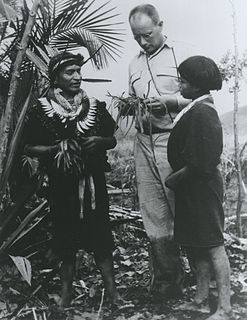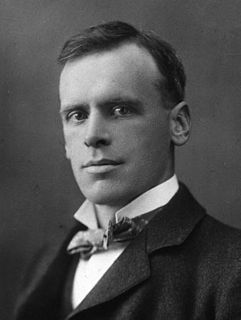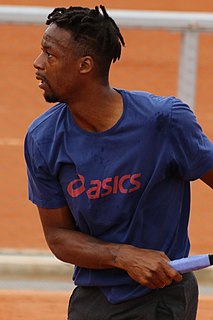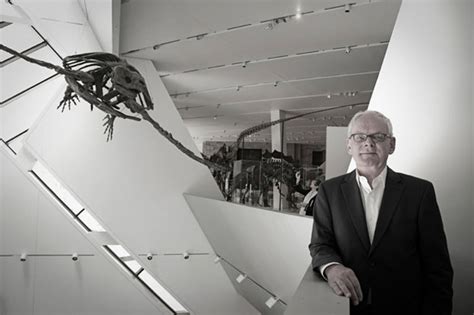A Quote by Richard Evans Schultes
One wonders how people in primitive societies, with no knowledge of chemistry or physiology, ever hit upon a solution to the activation of an alkaloid by a monoamine oxidase inhibitor. Pure experimentation? Perhaps not.
Related Quotes
That's how you write novels actually. You suddenly hit upon something and you realize this is the path you were meant to take. You'd be a fool if you didn't follow it. Perhaps it's like solving a difficult question in pure mathematics. There must be a moment when the solution is so simple and evident that you wonder why you hadn't come upon it before. When you do come upon it, you know it in the deepest part of your being. It carries its own logic.
One wonders whether a generation that demands instant satisfaction of all its needs and instant solution of the world's problems will produce anything of lasting value. Such a generation, even when equipped with the most modern technology, will be essentially primitive it will stand in awe of nature, and submit to the tutelage of medicine men.
Wherever primitive man put up a word, he believed he had made a discovery. How utterly mistaken he really was! He had touched a problem, and while supposing he had solved it, he had created and obstacle to its solution. Now, with every new knowledge we stumble over flint-like and petrified words and, in so doing, break a leg sooner than a word.
Memory is knowledge; character is the box of values and habits in which our knowledge knocks around. People with a lot of knowledge thrown together in a box that encourages social intercourse and experimentation tend to come up with good ideas, which are the engine of change. Think of Silicon Valley in California, or Oxbridge in the United Kingdom.
Chemistry is really about two people who like to act together, I think. It's like tennis in the most cliched way. It's like if you hit the ball, they hit the ball back, and they don't hit it into the stands, and they don't put the ball in their pocket and walk off - and they don't argue with the umpire, you know?



































